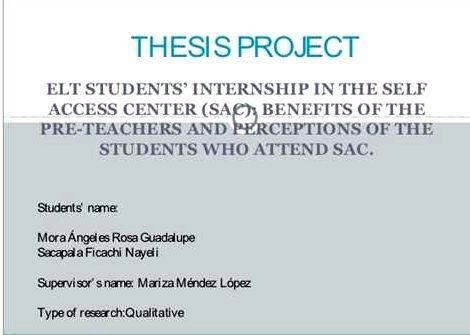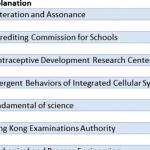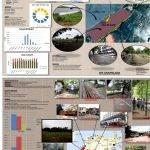Customer Satisfaction, Net Promoter Score and their impact on business growth of alpine ski resorts My Central Issue Research Questions to research on customer loyalty metrics like
overall satisfaction
likelihood to repurchase
likelihood to recommend
to test if they have a (positive) correlation with business growth
and to test if any of those metrics (in particular NPS) is a better predictor of business growth than others a scientific debate is going on regarding the value of NPS as a single predictor of business growth compared to other metrics of customer loyalty.
NPS is highly relevant in practice but its scientific quality is in doubt.
My purpose is to give further insights on the quality of NPS in predicting business growth.
Little is known about the impact of certain satisfaction measures on the likelihood of being a promoter and potential moderators (Personal and Situational Factors). Significance finding the research gap Literature Review filling the gap My contribution to knowledge RQ1: Is there a positive correlation between customer satisfaction and business growth of alpine ski resorts?
RQ2: Is the number of Net Promoters (positively) correlated to business growth?
RQ3: Is the likelihood to recommend a better predictor of business growth than other loyalty metrics such as overall satisfaction or likelihood to repurchase?
RQ4: Are some satisfaction measures significantly stronger correlated to the recommendation likelihood than others?
RQ5: Do personal or situational factors affect the likelihood of being a promoter? Recommendation The Net Promoter Score overall satisfaction likelihood to repurchase likelihood to recommend Business
Growth single satisfaction measures Likelihood of being a promoter Personal/Situational Factors Customers are asked in a survey about their willingness to recommend a product/service to peers on a rating scale (1-10 for example).
Based on a 1-10 rating there are:
Promoters (9-10): extremely likely to recommend
Passively satisfied (7-8)
Detractors (0-6): extremely unlikely to recommend
Net Promoters: the percentage of customers who are promoters minus the percentage of customers that are detractors. Some Basic Definitions Customer Loyalty Loyalty = the willingness of someone – a customer, an employee, a friend – to make an investment or personal sacrifice in order to strengthen a relationship.
For a customer that can mean to stick to a supplier that treats him well and gives him good value even this supplier does not offer the best price.
True loyalty affects profitability
Loyalty drives growth Overall Satisfaction Likelihood to recommend Customer Loyalty Likelihood to repurchase and others Reichheld (2003):
the founder of NPS
claims that NPS is the single best predictor for of business growth
In his view the problem with traditional customer satisfaction surveys: results do not correlate tightly with growth or profits, but NPS does
It is difficult to find a strong correlation between (classical) customer satisfaction measures and business growth. What do others say? Keiningham et al. (2007)
conducting a long-term survey: 21 firms and 15500 interviews
findings: overall satisfaction is as good as NPS in predicting growth
Net promoter does not perform better than the ACSI (American Customer Satisfaction Index) other researches find a clear correlation between customer satisfaction and business growth: (examples)
Gruca and Rego 2005
Fornell and Colleagues 2006 Hayes (2008a,2008b) Four main loyalty questions:
Overall satisfaction with company XY
Likelihood to recommend company XY to peers
Likelihood to repurchase product/service from company XY
Likelihood to chose company XY when choosing a company in the industry for the first time Factor analysis revealed that the correlation between questions and underlying factor is high (0,9) one factor solution.
All question measure one underlying construct: customer loyalty.
NPS founders say that one item (likelihood to recommend) would be enough resp. the best to measure customer loyalty that’s not true because reliability decreases!
There is little measurement error when all questions are used together. Single survey questions have inherent measurement error. Despite intense use in industry. there is still a lack of scientific relevance of Reichheld’;s NPS as a single best predictor of business growth I will dig into that gap and
investigate how well NPS performs in predicting growth in the case of alpine ski resorts
check if NPS performs better than other customer loyalty metrics
give a clearer picture of how what influences a customer to give a recommendation to peers Regarding Theory:
providing new arguments for the debate of the value of NPS for predicting growth
giving further insights concerning what items of customer loyalty are strongest drivers of business growth Regarding Practice:
giving destination managers a clue how important promoters are for their ski resort’;s growth in general
providing destination managers a better understanding of what drives customers to recommend their resort to peers Method Data Collection: Data is already gathered and available; 40000 face-to-face interviews in 55 ski resorts in 5 countries Statistical Methods:
exploratory factor analysis to measure the different constructs
Linear regressions, i.e. for measuring the relationship between the independent variable customer satisfaction (scale) and the dependent variable Business Growth (scale).
testing moderating effects with multiple group anaylsis of AMOS a socratic approach to proposal presentation. Timeline Mid-January Mid-March End of April 1 2 3 Finish writing Theory part including
development of hypothesis
definition of core concepts
and reflection of literature finish methodology findings
having valid and reliable results to answer the research questions starting literature review
and proposal writing Mid-May finish discussion and contribution
providing good answers to the research questions starting with SPSS analysis constant writing of theoretical framework





 Art museum architecture thesis proposal
Art museum architecture thesis proposal Computer aided instruction system thesis proposal
Computer aided instruction system thesis proposal List of abbreviations in thesis proposal
List of abbreviations in thesis proposal Beach resort architecture thesis proposal titles
Beach resort architecture thesis proposal titles Jason richwine harvard thesis proposal
Jason richwine harvard thesis proposal






